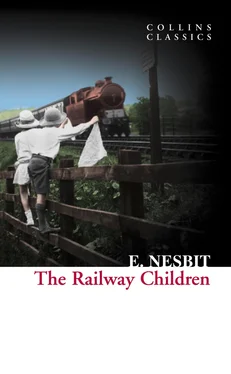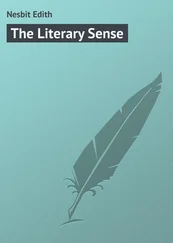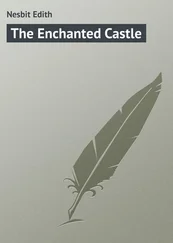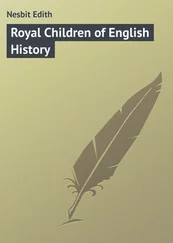‘Old gent,’ he said; ‘he asked me to fetch it up straight away.’
‘Thank you very much,’ said Peter, and then, as the Porter lingered, he added:
‘I’m most awfully sorry I haven’t got twopence to give you like Father does, but –’
‘You drop it if you please,’ said the Porter, indignantly. ‘I wasn’t thinking about no tuppences. I only wanted to say I was sorry your Mamma wasn’t so well, and to ask how she finds herself this evening – and I’ve fetched her along a bit of sweetbriar, very sweet to smell it is. Twopence indeed,’ said he, and produced a bunch of sweetbriar from his hat, ‘just like a conjurer,’ as Phyllis remarked afterwards.
‘Thank you very much,’ said Peter, ‘and I beg your pardon about the twopence.’
‘No offence,’ said the Porter, untruly but politely, and went.
Then the children undid the hamper. First there was straw, and then there were fine shavings, and then came all the things they had asked for, and plenty of them, and then a good many things they had not asked for; among others peaches and port wine and two chickens, a cardboard box of big red roses with long stalks, and a tall thin green bottle of lavender water, and three smaller fatter bottles of eau-de-Cologne. There was a letter, too.
‘Dear Roberta and Phyllis and Peter,’ it said; ‘here are the things you want. Your mother will want to know where they came from. Tell her they were sent by a friend who heard she was ill. When she is well again you must tell her all about it, of course. And if she says you ought not to have asked for the things, tell her that I say you were quite right, and that I hope she will forgive me for taking the liberty of allowing myself a great pleasure.’
The letter was signed G.P. something that the children couldn’t read.
‘I think we were right,’ said Phyllis.
‘Right? Of course we were right,’ said Bobbie.
‘All the same,’ said Peter, with his hands in his pockets, ‘I don’t exactly look forward to telling Mother the whole truth about it.’
‘We’re not to do it till she’s well,’ said Bobbie, ‘and when she’s well we shall be so happy we shan’t mind a little fuss like that. Oh, just look at the roses! I must take them up to her.’
‘And the sweetbriar,’ said Phyllis, sniffing it loudly: ‘don’t forget the sweetbriar.’
‘As if I should!’ said Roberta. ‘Mother told me the other day there was a thick hedge of it at her mother’s house when she was a little girl.’
The Engine-Burglar
What was left of the second sheet and the Brunswick black came in very nicely to make a banner bearing the legend
| SHE IS NEARLY WELL, THANK YOU |
and this was displayed to the Green Dragon about a fortnight after the arrival of the wonderful hamper. The old gentleman saw it, and waved a cheerful response from the train. And when this had been done the children saw that now was the time when they must tell Mother what they had done when she was ill. And it did not seem nearly so easy as they had thought it would be. But it had to be done. And it was done. Mother was extremely angry. She was seldom angry, and now she was angrier than they had ever known her. This was horrible. But it was much worse when she suddenly began to cry. Crying is catching, I believe, like measles and whooping-cough. At any rate, everyone at once found itself taking part in a crying-party.
Mother stopped first. She dried her eyes and then she said:
‘I’m sorry I was so angry, darlings, because I know you didn’t understand.’
‘We didn’t mean to be naughty, Mammy,’ sobbed Bobbie, and Peter and Phyllis sniffed.
‘Now, listen,’ said Mother; ‘it’s quite true that we’re poor, but we have enough to live on. You mustn’t go telling everyone about our affairs – it’s not right. And you must never, never, never ask strangers to give you things. Now always remember that – won’t you?’
They all hugged her and rubbed their damp cheeks against hers and promised that they would.
‘And I’ll write a letter to your old gentleman, and I shall tell him that I didn’t approve – oh, of course I shall thank him, too, for his kindness. It’s you I don’t approve of, my darlings, not the old gentleman. He was as kind as ever he could be. And you can give the letter to the Station Master to give him – and we won’t say any more about it.’
Afterwards, when the children were alone, Bobbie said:
‘Isn’t Mother splendid? You catch any other grown-up saying they were sorry they had been angry.’
‘Yes,’ said Peter, ‘she is splendid; but it’s rather awful when she’s angry.’
‘She’s like Avenging and Bright in the song,’ said Phyllis. ‘I should like to look at her if it wasn’t so awful. She looks so beautiful when she’s really downright furious.’
They took the letter down to the Station Master.
‘I thought you said you hadn’t got any friends except in London,’ said he.
‘We’ve made him since,’ said Peter.
‘But he doesn’t live hereabouts?’
‘No – we just know him on the railway.’
Then the Station Master retired to that sacred inner temple behind the little window where the tickets are sold, and the children went down to the Porter’s room and talked to the Porter. They learned several interesting things from him – among others that his name was Perks, that he was married and had three children, that the lamps in front of engines are called head-lights and the ones at the back tail-lights.
‘And that just shows,’ whispered Phyllis, ‘that trains really are dragons in disguise, with proper heads and tails.’
It was on this day that the children first noticed that all engines are not alike.
‘Alike?’ said the Porter whose name was Perks, ‘lor, love you, no, Miss. No more alike nor what you an’ me are. That little ’un without a tender as went by just now all on her own, that was a tank, that was – she’s off to do some shunting t’other side o’ Maidbridge. That’s as it might be you, Miss. Then there’s goods engines, great, strong things with three wheels each side – joined with rods to strengthen ’em as it might be me. Then there’s main-line engines as it might be this ’ere young gentleman when he grows up and wins all the races at ’is school – so he will. The main-line engine she’s built for speed as well as power. That’s one to the 9.15 up.’
‘The Green Dragon,’ said Phyllis.
‘We call her the Snail, Miss, among ourselves,’ said the Porter. ‘She’s oftener be’ind’and nor any train on the line.’
‘But the engine’s green,’ said Phyllis.
‘Yes, Miss,’ said Perks, ‘so’s a snail some seasons o’ the year.’
The children agreed as they went home to dinner that the Porter was most delightful company.
Next day was Roberta’s birthday. In the afternoon she was politely but firmly requested to get out of the way and keep there till tea-time.
‘You aren’t to see what we’re going to do till it’s done; it’s a glorious surprise,’ said Phyllis.
And Roberta went out into the garden all alone. She tried to be grateful, but she felt she would much rather have helped in whatever it was than have to spend her birthday afternoon by herself, no matter how glorious the surprise might be.
Now that she was alone, she had time to think, and one of the things she thought of most was what Mother had said in one of those feverish nights when her hands were so hot and her eyes so bright.
The words were: ‘Oh, what a doctor’s bill there’ll be for this!’
She walked round and round the garden among the rose-bushes that hadn’t any roses yet, only buds, and the lilac bushes and syringas and American currants, and the more she thought of the doctor’s bill, the less she liked the thought of it.
Читать дальше












